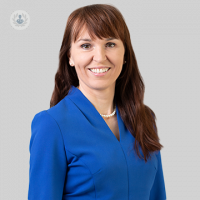Menopause and heart health: Understanding the risks
Written by:Menopause signifies a significant life transition for women, typically occurring between the ages of 45 and 55. As women age and approach menopause, their susceptibility to heart disease increases due to the decline in oestrogen levels. This hormonal shift, often overlooked in cardiovascular research, exposes women to a heightened risk of cardiovascular disease (CVD). In her latest online article, Dr Gosia Wamil delves into the impact of menopause on heart health, drawing insights from key research findings and shedding light on the importance of gender-specific considerations in cardiovascular care.

Research findings:
- American Heart Association (AHA) heart disease and stroke statistics (2021): The AHA highlights a substantial increase in the risk of heart disease in women following menopause, reaching levels nearly equivalent to those observed in men. Shockingly, cardiovascular disease is identified as the leading cause of death in women, contributing to approximately one in three female fatalities.
- The Framingham heart study: This influential epidemiological investigation accentuates a significant elevation in the risk of coronary heart disease for both men and women after the age of 55. Postmenopausal women appear to "catch up" to men concerning heart disease risk during this crucial phase of life.
- Atherosclerosis risk in communities (ARIC) Study: The ARIC study further strengthens the argument by revealing a comparable incidence of coronary heart disease in postmenopausal women and men. This highlights the profound influence of menopause-associated hormonal changes on heart disease risk.
- A meta-analysis of prospective cohort studies: A meta-analysis conclusively establishes that postmenopausal women confront a comparable risk of developing coronary heart disease to that of men. This emphasises the urgent need to address cardiovascular risk factors specifically in postmenopausal women.
Oestrogen’s role in heart health:
Oestrogen, a cornerstone in fortifying heart health among women, contributes to sustaining optimal cholesterol levels, fostering vasodilation, and exerting anti-inflammatory effects on arterial linings. Additionally, oestrogen promotes improved blood circulation and hinders arterial plaque accumulation. However, as women transition through menopause and oestrogen levels decline, these protective effects diminish, leading to heightened risks of hypertension, elevated cholesterol, and an increased susceptibility to heart disease.
Cholesterol regulation:
The primary mechanism by which oestrogen protects heart health lies in its regulation of cholesterol. Through interaction with the liver, oestrogen orchestrates an overall reduction in total cholesterol levels while elevating high-density lipoprotein (HDL) cholesterol (the "good" cholesterol) and reducing low-density lipoprotein (LDL) cholesterol (the "bad" cholesterol).
Gender bias in cardiovascular research:
Historically, cardiovascular research and clinical guidelines have predominantly focused on male populations, inadvertently creating a gender bias in understanding symptoms and risk factors related to cardiovascular disease (CVD). This oversight has led to the underestimation or even overlooking of manifestations of CVD in women. Recognising the impact of hormonal fluctuations, especially during menopause, is imperative for precise diagnosis, timely intervention, and the development of appropriate prevention and treatment strategies for cardiovascular disease in women.
Atypical symptoms in women:
Women may exhibit atypical or less pronounced symptoms compared to men, necessitating a more nuanced approach in diagnosis. Symptoms such as fatigue, shortness of breath, nausea, vomiting, or pain in the neck, jaw, upper back, or abdomen may indicate cardiovascular issues. Women typically experience cardiovascular events about a decade later than men, owing to the protective effects of oestrogen before menopause.
Dr Gosia Wamil is an esteemed cardiologist with over 20 years of experience. You can schedule an appointment with Dr Wamil on her Top Doctors profile.


